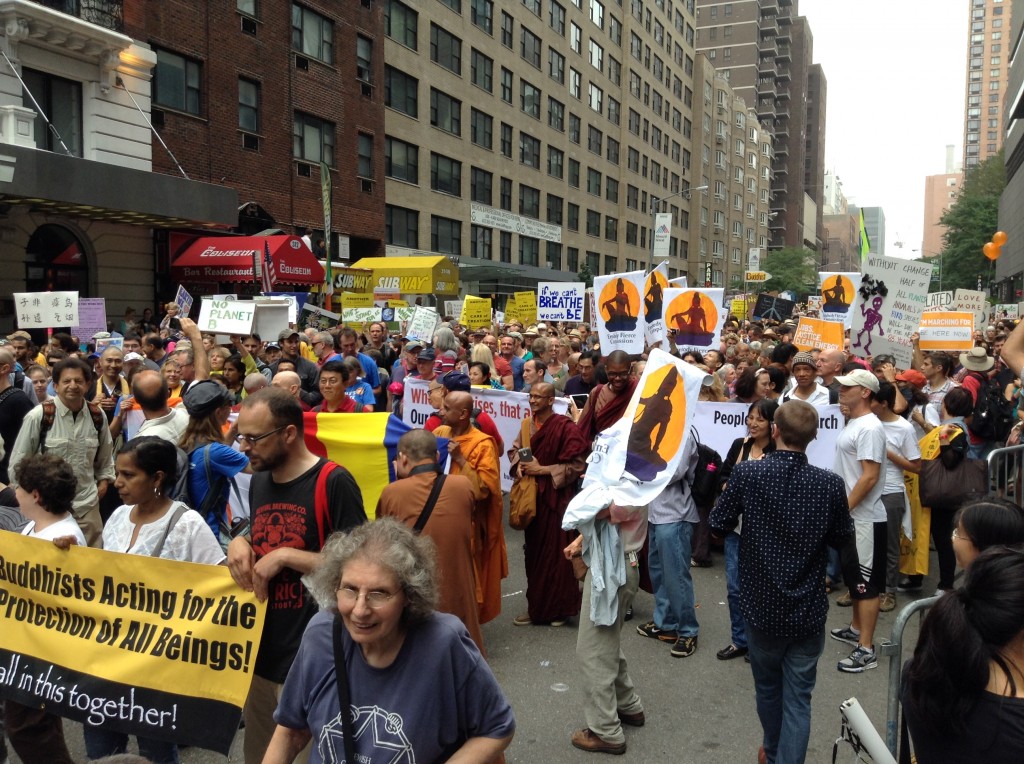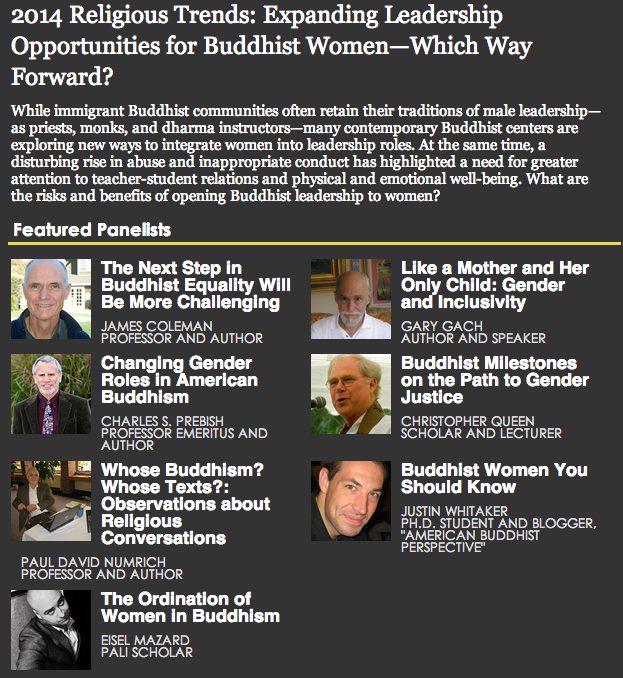Two thought-provoking posts appeared in the Buddhist blogosphere this week. First, my friend Shastri Ethan Nichtern writes about “Buddhism in a Post-Religious Society” for his blog, saying, “I firmly believe that Buddhist meditation, philosophy and psychology should not be viewed as religious practices.” Second, over at Tricycle‘s Awake in the World blog, Lama Jampa Thaye offers the provocative piece “We Are Not Kind Machines: A Radical Rejection of Scientific Buddhism”, in which he writes that “while science itself is not dangerous to the dharma, the appeal for a ‘scientific Buddhism,’ an insistence that Buddhism must accord with the materialist propositions often paired with scientism, most definitely is. Such a Buddhism is not the dharma.”
Both posts are worth reading and mulling over — each certainly caused me to consider a lot. In the final analysis, I think I believe the opposite of Ethan, and agree with Lama Jampa (with the caveat that I think scientism might be a better word to refer to what he’s concerned about).
As I’ve said before, it certainly seems to me that from my standpoint as both a practitioner and a scholar that there are big problems with the perennial suggestion that Buddhism is not a religion. Now, don’t get me wrong: I certainly think that the contemplative practices of many Buddhist traditions can and do have benefits and applications outside the context of Buddhism as an organized religion…but I seriously question the notion that they can ever be completely stripped of what are often referred to as “cultural” or “religious” trappings. In fact, I don’t think they can.
There are a number of reasons I think this, but let’s focus on just a couple. For one thing, the argument that Buddhism isn’t a religion seems to be making a claim (consciously or unconsciously) for a kind of Buddhist exceptionalism. That’s something I think we don’t want to be doing. The great Buddhologist Richard Gombrich is particularly compelling on this point. Speaking about the “liberal, Protestant” Buddhist movement in modern Sri Lanka, he writes:
The recurrent claim that Buddhism is not a religion on a par with others but something of a different order, maybe a ‘way of life,’ so that the other religions are or may be compatible with it, is, among other things, an attempt to reclaim Buddhist uniqueness. What is being claimed, usually in a very vague and muddled way, can be expressed in my terms: that the other religions are all right on the communal level, but only the Buddha pointed the true way to salvation.
On the one hand, as a Buddhist minister, I certainly think Buddhism is special; on the other hand, though, I don’t think it should get to be “above the law,” entitled to all the same privileges as the world’s other religions, but beholden to none of their rules for engagement with a pluralistic, democratic society.
In addition, Gombrich has something to say about an inherent problem for those aiming to create a scientistic sort of Buddhism. He goes on to make what I think is an extremely astute observation about what is happening when one attempts to secularize Buddhist meditation, for example, writing:
To use meditation for secular purposes is to try to adapt Buddhist soteriology to life in the world.
The various traditions of meditation that exist in the world — Buddhist or other — were all developed with particular soteriological goals in mind. These traditions certainly didn’t occur in vacuums, and had very specific ideas about what salvation looked like. (There are some pretty big differences — yes? — between how “secular meditation” is taught by those coming from, say, TM, contemplative Christianity, and the Zen tradition. Many have quite different ends in mind — bliss, communion, liberation, etc. — as well.) Coming back again more specifically to Buddhism, even if we want to understand it as some kind of “transhistorical set of techniques for quieting the mind and attaining liberation,” scholar Marilyn Ivy contends that we’re still talking about something that is unmistakably Buddhist:
Perhaps we should talk about post-Buddhism instead, an amalgam of therapy, breath awareness, and mindfulness techniques suited for the inhabitants of postmodernity. Yet as in ‘post’-anything, the post still bears the trace of that which has been superseded: post-Buddhism is still post-Buddhism.
As much as we may try to secularize Buddhism, it will still have religiosity in its DNA. (And, yes, I think religion as a definable phenomena is much more complicated than simply believing in supramundane things; we have to engage with one of the more broad and sophisticated definitions that most people use, not the definitions that do us the most favors in terms of making a case for Buddhist exceptionalism.)
And, as Lama Jampa says so well, that doesn’t have to be a bad thing; in fact, a scientistic approach to Buddhism may limit the path’s effectiveness considerably. Buddhism can do much for us on fronts that have yet to be scientifically validated.
But what do you think? I’m always interested in reader feedback, but I want to hear from you on this…
WORKS CITED:
- Richard Gombrich, Theravada Buddhism: A Social History from Ancient Benares to Modern Colombo (London and New York: Routledge, 1988).
- Marilyn Ivy, “Modernity” in Critical Terms for the Study of Buddhism, ed. Donald S. Lopez, Jr. (Chicago and London: The University of Chicago Press, 2005).












